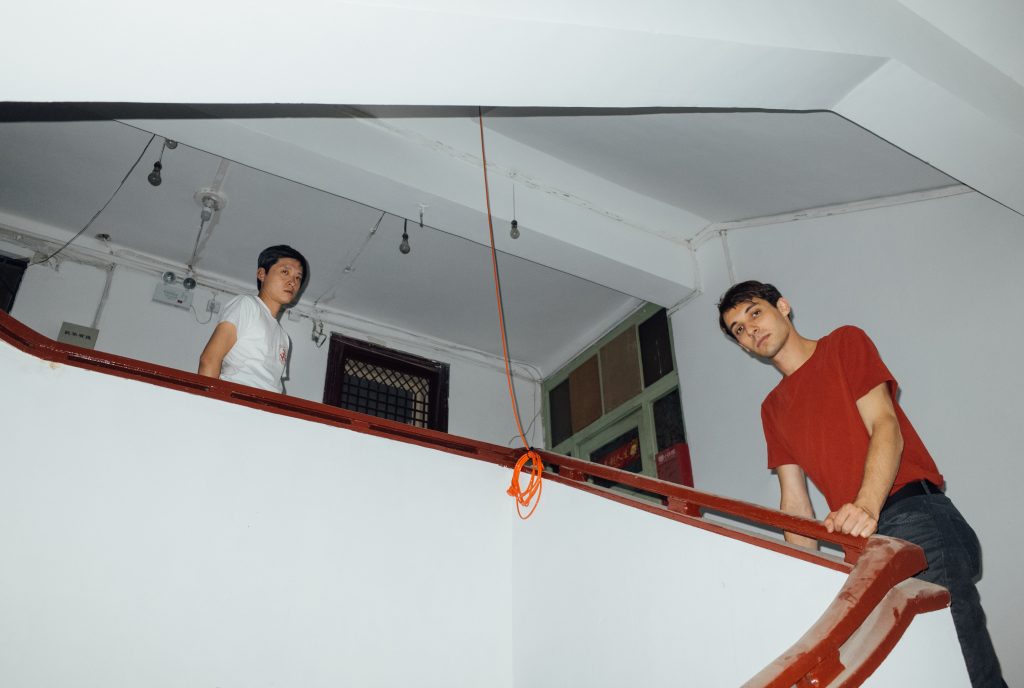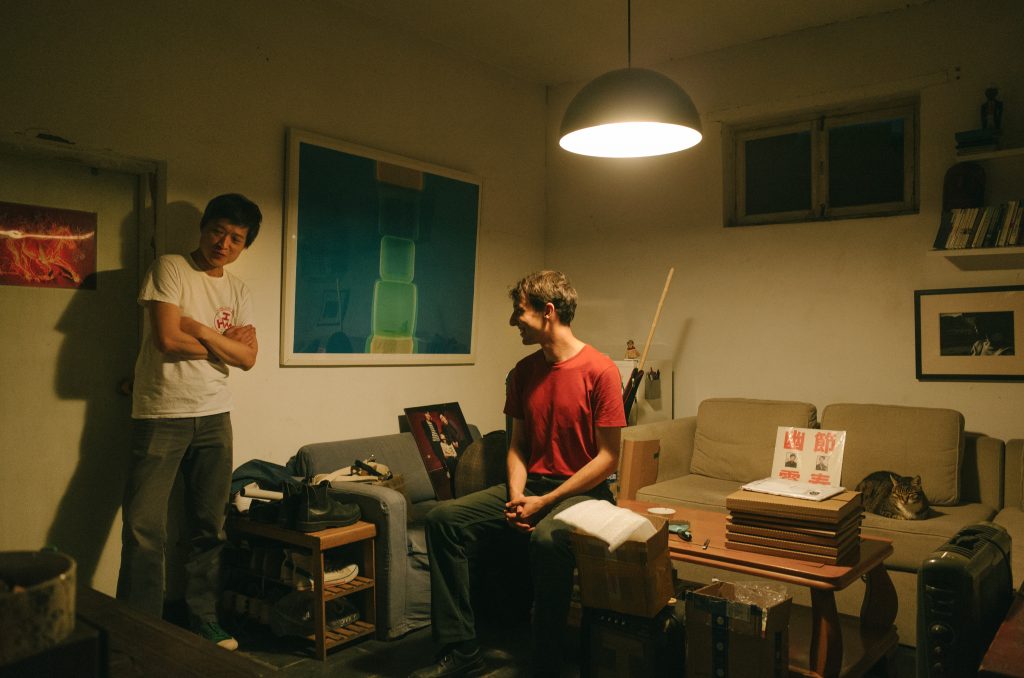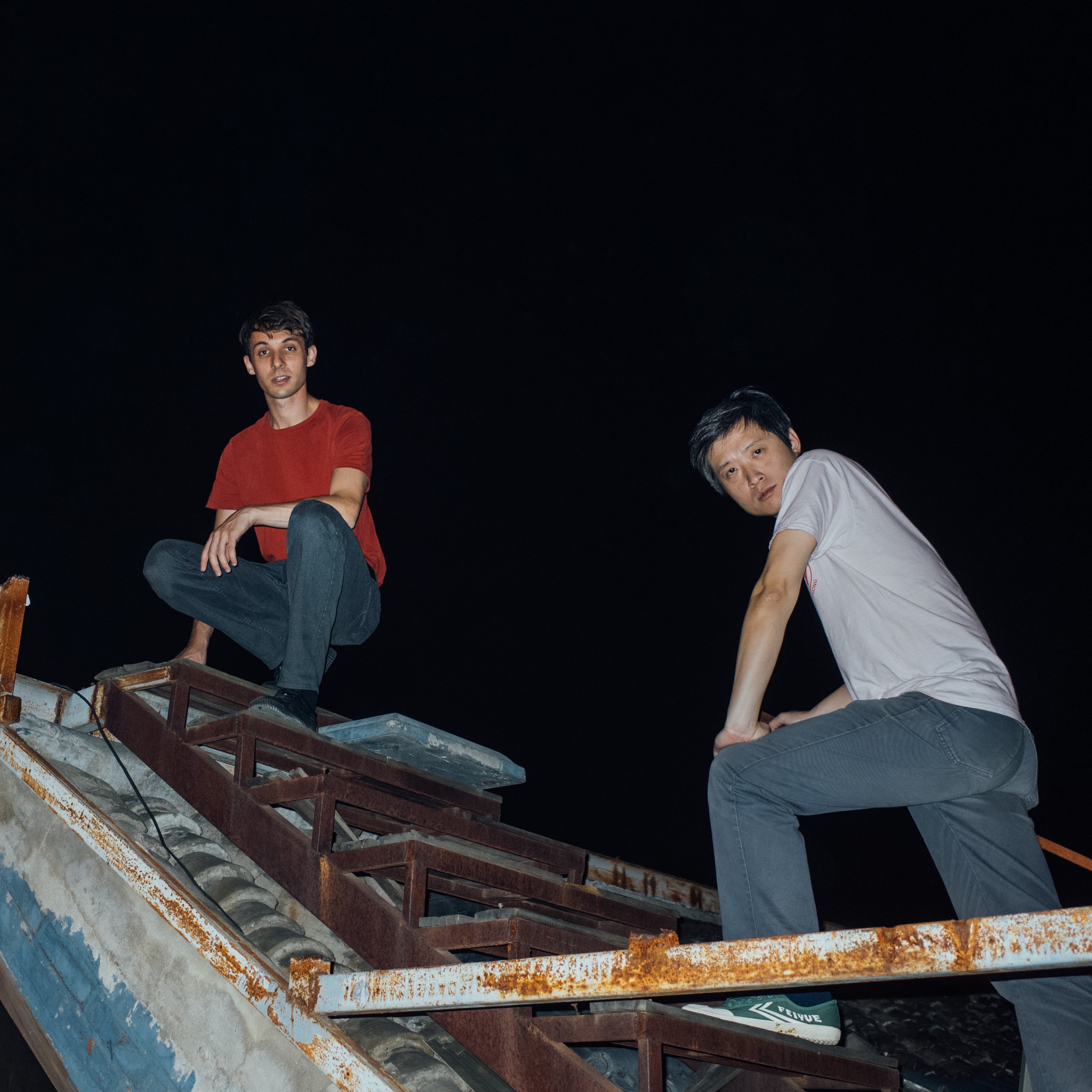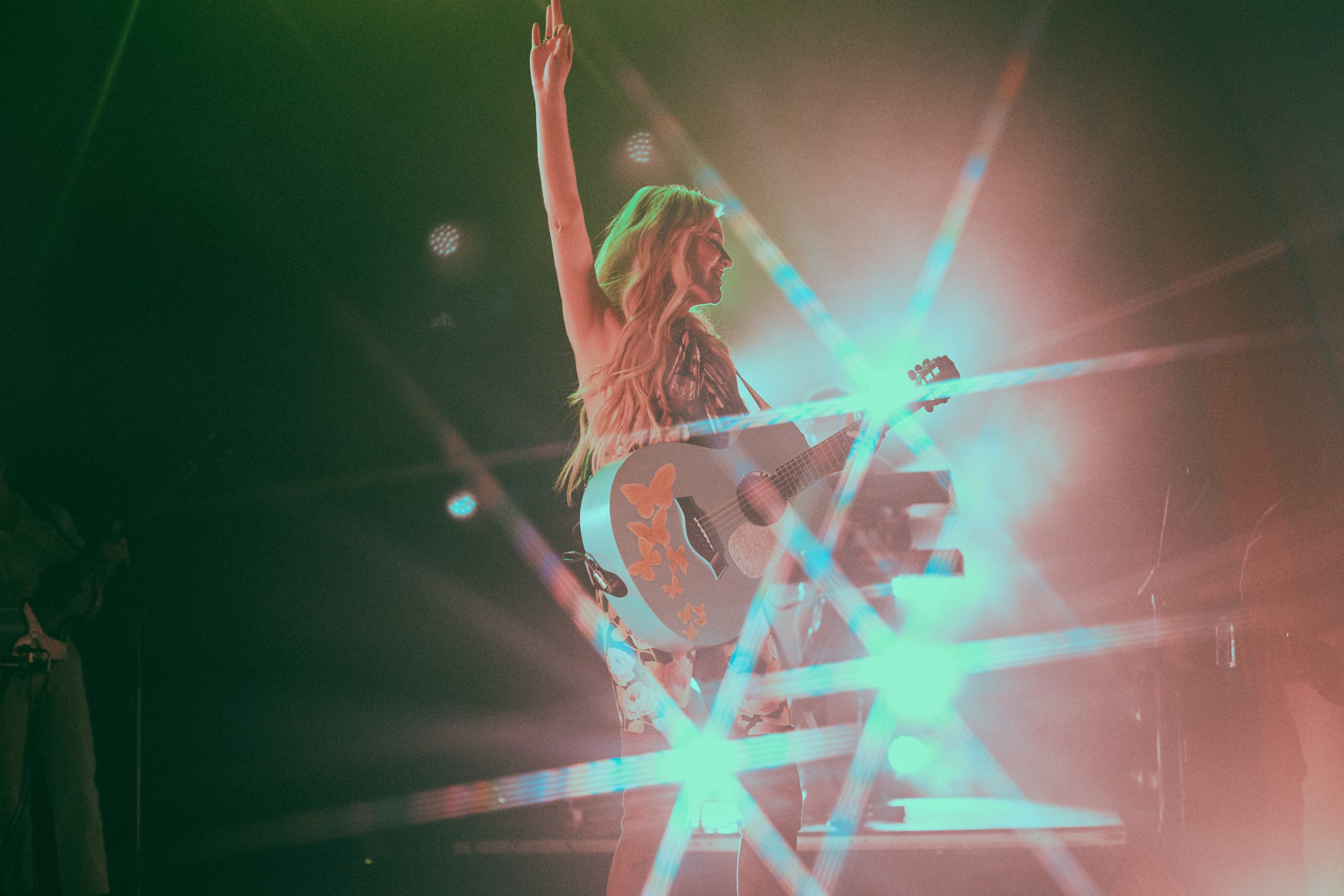Bejing based duo Gong Gong Gong are at the forefront of the psychedelic drone scene, creating intense tunes with solely a guitar and a bass. After a busy bout of tours, they’ve released a new album full of riffing goodness, and luckily, we managed to grab ’em for a chat!
First of all, how’s it been going recently? I understand you’ve just finished putting together an LP and had a pretty hectic time recently at SXSW?
Josh: We had a busy start to the year, first touring in Europe with the Brooklyn band BODEGA, and then ending with shows at SXSW. After we got back to the US, we finished the mix of our LP, Phantom Rhythm, which is going to be released on Wharf Cat Records on October 4! We’re really excited about that, as we put almost two years into recording and mixing process. The past month we’ve been back in Beijing, doing our first shows back in China since the end of last year – it feels good to be out and performing here again, especially after really honing our live set in Europe. We also just shared our first music video! I shot and directed it in Beijing with my good friend Liu Yi in September.
Tom: Yeah, I went back to Beijing after our last show in America at MoMA PS1. We took a break and just did our album pre-release show in Hangzhou, Shanghai, and Beijing. It was fun, and it felt good playing shows again. And we wrote a couple of new songs too.

Have these experiences changed you at all, as a band or as people? Did you find yourselves embracing the whole whirlwind of it?
Josh: Absolutely! Phantom Rhythm is the first proper studio recording that I’ve done, and I learned a lot going through the process of the recording and mixing process. Our setup and sound is pretty unusual. How do you figure out the best way to record two stringed instruments, in a way that makes the sound more than the sum of its parts? Now that there are slowly starting to be more people who are aware of us, it’s cool to perform for people outside of Beijing who have listened to us but never seen us live before. I think as a musician, touring can sometimes alter your relationship to your songs and your performance. Also, just playing the same songs everyday for a month or so makes you feel really locked into what you’re playing.
Playing live on stage paradoxically becomes one of the only moments of your day that you feel at ease and in control, because everything else is in flux.
Tom: Well I guess we can now finish soundcheck in five mins after SXSW, and that’s the only thing I’ve learnt there. Haha.
A two-piece is an intensely powerful concept – with your recent experience in the studio, were you ever tempted to add in the overdubs and change how you have gone about making music previously?
Josh: For this album, we wanted to keep things as stripped down as possible and convey to people what it sounds like to our own ears when we play live. The priority was to bring out all the harmonics and overtones that emerge between our parts: that’s the ‘phantom rhythm’ that the album is named after. It’s important for our songs to work in both a live setting as well as on a studio recording, so we weren’t looking to go wild with overdubs this time. We have done different collaborations in the past, specifically our ‘Rhythm n’ Drone’ series of tapes, the first with guitarist Vince Li, of Tom’s previous band the Offset: Spectacles, and the second with Vince and my brother Simon Frank on synth. We’ve done live collaborations with our friend Li Jianhong, who is a really talented noise guitarist and improviser. I think in the future we’re open to doing more studio recordings with collaborators.
Tom: We love playing with other musicians, but Gong Gong Gong is always the unit and I think there is still a lot more we can do with two instruments. Maybe we will add a timpani player when we finally run out of ideas.

The “drone” in music is a strongly hypnotic motif, how do you limit yourselves from extending and extending your tracks? Is it a group decision?
Josh: This is an important issue, haha. Generally, Tom and I agree about how long pieces should repeat, but it also depends on the context – for example, whether it’s a recording or we’re playing live. We write our songs by jamming together, but our finished songs are generally very precisely structured. I’ve been inspired by minimalist composers like Steve Reich or psychedelic guitar music like Les Rallizes Dénudés, which in their own ways are both extremely droney and repetitive. You’ll hear a motif over and over again – as a listener, you can go from thinking “this sounds cool” to “this is going on too long” to “when is this going to stop?” to finally having something click and hearing something in a completely different way, which wouldn’t have been possible without all the repetition that came before it. So, there is a certain sweet spot.
Tom: Both Josh and I are really reluctant to overplay anything, so I guess we are trying to limit the drone to be as short as possible. I guess that somehow works?

People find catharsis in the hypnotic aspect of boogie, especially in North Hill Blues and West African music for example, but do you yourselves get a strong catharsis from playing your music? If so, is this release of energy ever a tiring thing? Is there something perhaps that helps you both get into the right headspace for playing?
Josh: Catharsis is definitely an important aspect of what we’re doing—especially the idea of reaching a kind of catharsis through drone and repetition. I think that element is what so many of the musical traditions I’m inspired by share, whether it’s hill country blues, Tuareg music, weird techno, Indonesian gamelan…. On the one hand, performing is a really personal thing, but you also want to be able to engage the audience and physically or sonically externalise how you’re feeling. Part of the thing that I find interesting about the repetition of touring is that you train yourself to get in the headspace of performing, and for those 45 minutes you give it your complete focus and attention. In a sense it’s very meditative, especially when you’re playing rushed shows at places like SXSW: it’s really a skill to get into the right mindset before playing. I think some of our best shows have been when Tom and I felt completely exhausted by everything else we had to deal with, and were still able to tap into a shared wavelength and give the performance our all.
Just like the audience, I think we can lose ourselves in the repetition of our music, too.
Tom: Definitely, I always say our live set are more physical than musical. The more tired we are, the better set we’ve played. Therefore, releasing energy is almost the most important part of our playing.
What’s in store for the rest of 2019? Can we expect the LP release soon?
Josh: Our LP, Phantom Rhythm, is out on October 4. We’ll be playing some more shows in China at the end of the year, and plan to tour in Europe and the US in the second half of 2020. We’re working on the next album, too.
Tom: Yeah, I can’t wait to go on tour again next year!
You can listen to Phantom Rhythm on Spotify now, so check it out!


